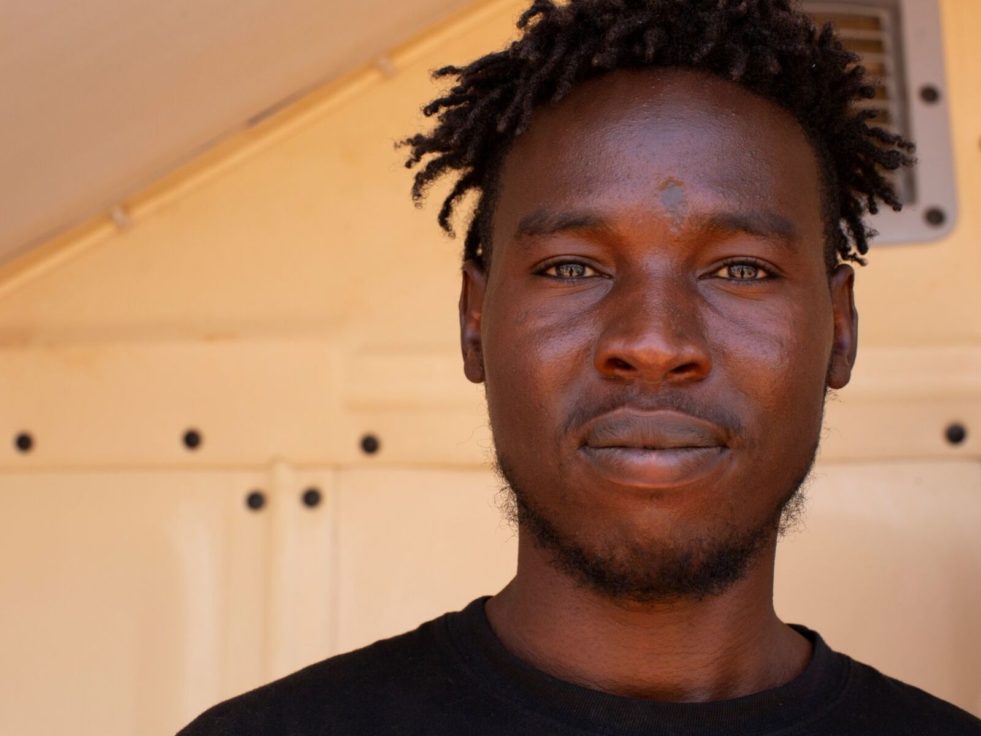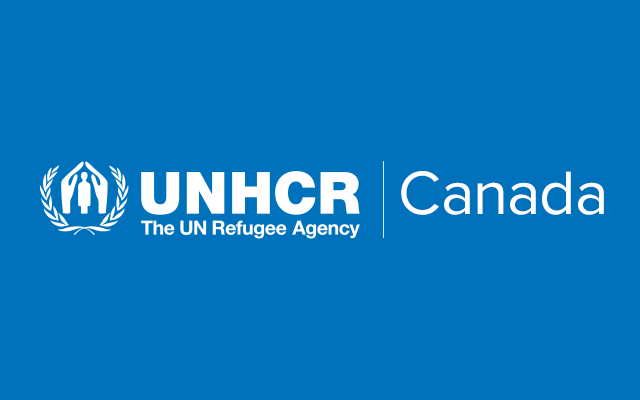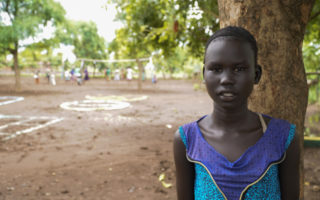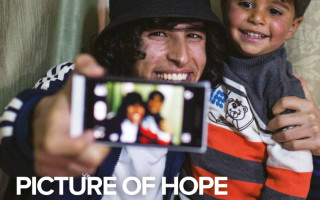
Yasir, a Sudanese asylum-seeker forced to flee persecution in his country, is recovering at UNHCR’s Emergency Transit Mechanism (ETM) camp outside Niamey, Niger. After fleeing Darfur, Yasir was illegally detained by a militia in Tripoli and kept in centres where he was routinely beaten and humiliated. Ⓒ UNHCR/John Wendle
A desperate journey to safety
By Louise Donovan and Lauren La Rose
Sudanese torture survivor trapped in Libya evacuated to Niger.
His scars may be healing, but the memories of vicious beatings have not faded from Yasir’s memory.
A native of Sudan, Yasir comes from an ethnic group associated with rebellion in Darfur. Yet despite having no association with the group, he was targeted and tortured.
Yasir was 11 years old when he fled from Sudan to Uganda to be with his father, who had already left the country. His mother could not come. When he was 15, he returned to Sudan to see her. In Darfur, he was immediately arrested and tortured before being dumped on the streets.
Trying to escape again, he ended up being smuggled by a network of traffickers to Libya and coerced into paying a fee to be released. Instead of being freed, he was sold to another smuggler and taken to the Bani Walid warehouse, approximately 180 kilometres southeast of the capital Tripoli.
“When we arrived [at Bani Walid] armed men forced us into an underground cell, with 500 other prisoners and beat us all day and all night. We were told to call our families and they demanded 10,000 dinars (CAD$9,200) for each of us.”
When he tried to escape, the smugglers shot through the door, killing seven and injuring many more, including Yasir, who was shot in the foot.
For punishment, they were tortured for four days, electrocuted in a swimming pool and had plastic burned onto their skin—all of which was filmed and sent to their families.
The horrors that people face along these perilous journeys are beyond all comprehension.
Yasir was taken to the Sabratha detention centre, then later to the Gaser Ben Gashir detention centre. After more than a year, UNHCR evacuated him to Niger in April 2019, where he is recovering at the Emergency Transit Mechanism (ETM) camp outside the capital of Niamey.
“More humanitarian evacuations are needed,” said Jean-Paul Cavalieri, UNHCR Chief of Mission in Libya. “They are a vital lifeline for refugees whose only other escape route is to put their lives in the hands of unscrupulous smugglers and traffickers on the Mediterranean Sea.”
Thousands of refugees and migrants risk their lives in the hands of traffickers and smugglers on dangerous journeys from Sub-Saharan Africa to North Africa, many seeking to reach safety in Europe.
UNHCR launched its Routes towards the Mediterranean strategy in June 2019, seeking CAD$277 million to help thousands of people fleeing horrific abuses at the hands of traffickers and smugglers. The agency aims to find safe alternatives for refugees so that they don’t fall prey to traffickers in their search to safety.
UNHCR has been identifying the most vulnerable people trapped inside Libyan detention centres and taking them to its Gathering and Departure Facility in Tripoli, while they await evacuation.
More than 3,900 individuals have been evacuated since the start of the operation in 2017, with most going to Niger where more lasting solutions, such as resettlement to third countries like Canada, can be found for them.
“The horrors that people face along these perilous journeys are beyond all comprehension. They are a violation of human rights and dignity,” says Alessandra Morelli, UNHCR’s Representative in Niger. “We work to bring a sense of hope back to these people, through care and healing.”





